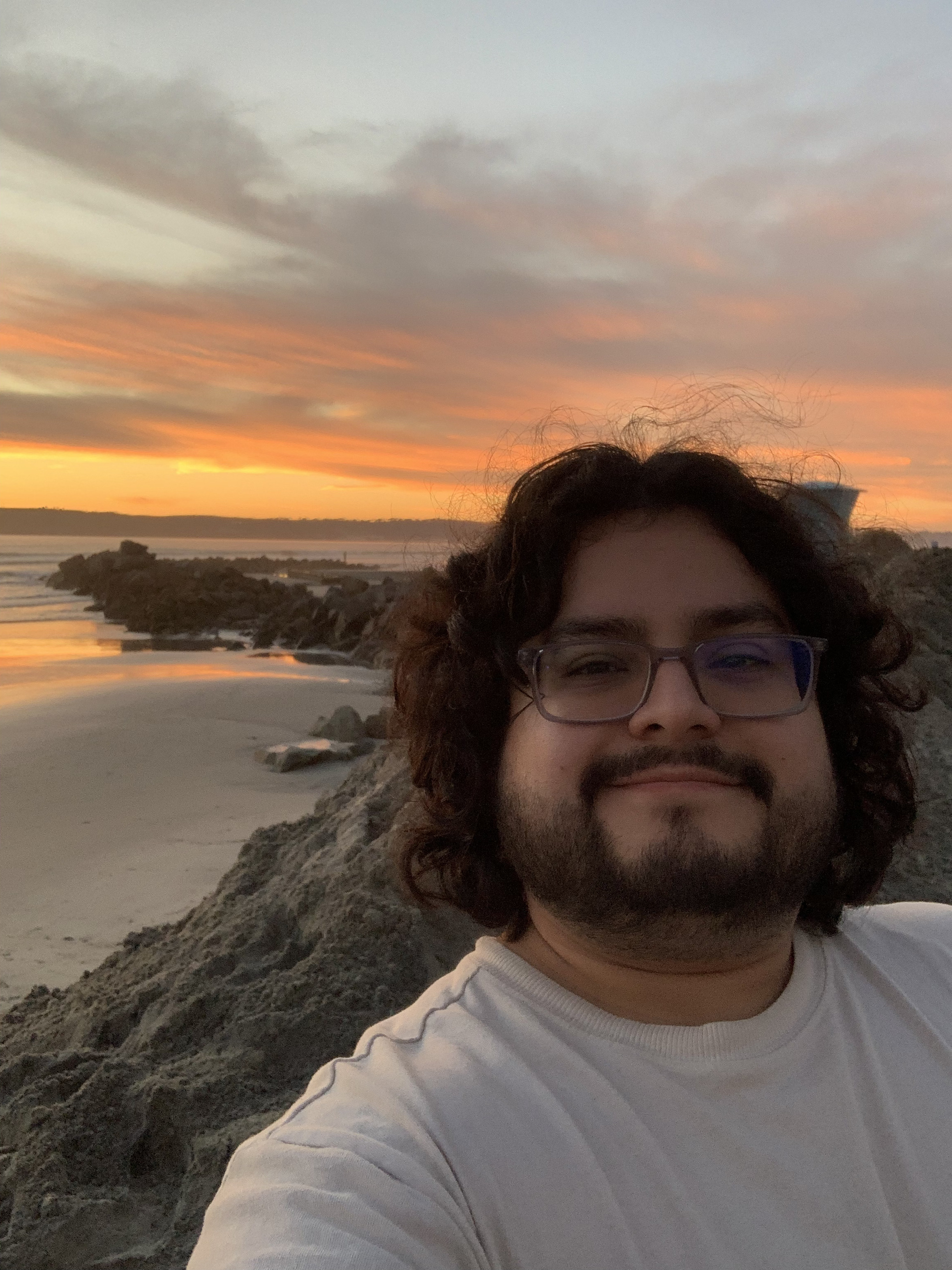MSc student’s curiosity about language learning started in childhood
Sasha Roeder Mah - 13 March 2024
 When Andres Dorado Solarte first arrived in Canada with his family, he was a not-quite-six-year-old who did not speak a word of English. He and his sister were fluent in Spanish and French, though, so his parents enrolled him in French immersion kindergarten. As the now first-year master’s student in rehabilitation science recalls with a chuckle, “I didn’t make many friends but at least I could speak French with my teacher.”
When Andres Dorado Solarte first arrived in Canada with his family, he was a not-quite-six-year-old who did not speak a word of English. He and his sister were fluent in Spanish and French, though, so his parents enrolled him in French immersion kindergarten. As the now first-year master’s student in rehabilitation science recalls with a chuckle, “I didn’t make many friends but at least I could speak French with my teacher.”
To tackle the problem, his parents brought in a babysitter who would come to their home, flashcards in hand, not just to care for the kids but also to teach them English. After just one summer, Dorado entered Grade 1 fully fluent in his new language.
That experience has stayed with Dorado all these years, leading to a fascination with how people acquire language that took him through a bachelor’s degree in psychology (minoring in linguistics) at the University of Alberta’s Campus Saint-Jean and into his current speech-language pathology research as a graduate student working under the supervision of Trelani Chapman, assistant professor in the Department of Communication Sciences and Disorders in the Faculty of Rehabilitation Medicine.
When Dorado entered university he knew what he wanted — to study language and literacy, and what he wasn’t as interested in — clinical work. He was unsure what a career might look like for him until Chapman showed him there was a path forward he had never even conceived of — in speech-language pathology research.
It was through conversations with Chapman that he came to learn about the master’s program he’s pursuing now, and he is forever grateful for her mentorship. “I wouldn’t have even known how to begin if I didn’t reach out and talk to a lot of people, especially Dr. Chapman,” he recalls. “When you’re trying to get into research, if you try to go solo your path is going to be a lot more difficult.”
While pursuing his undergraduate degree, Dorado produced a picture book for preschool-age children whose parents were planning to send them to French immersion schools. The book, developed based on consultations with Michael Tryon, the executive director of Canadian Parents for French, included a vocabulary page so the kids and their non-French-speaking parents could learn together. He plans to continue his research in French-language acquisition as he moves further in graduate studies, but for now he is focused on collaborating with his mentor, Chapman, examining six different hypotheses attributed to how children learn the alphabet.
When children enter kindergarten, they aren’t expected to know all the letters of the alphabet. But by the end of kindergarten they should know most and by the time they complete Grade 1 they are expected to know all. “Since those letters are the building blocks of written language,” says Dorado, “I want to look at how children may have similar or different patterns in trying to learn them. What do they see when they look at those shapes? Are there certain letters they pick up more quickly — for example, do they learn the first letter of their name more easily than other letters?” To learn what is happening for the children in his study, he uses eye tracking — and a fun astronaut theme that the kids find engaging.
To get the full picture, Dorado is working with children who have typically developing language, those with developmental language disorder (DLD), and those who are multilingual. Children with DLD — an average of two are in every classroom — have challenges learning to read and it’s been shown that these challenges can be identified early if they have difficulty learning letter names and sounds.
Dorado’s hope is that what his team learns from this research might help teachers support a positive early-learning experience, especially for children with challenges. “If we’re able to understand what a child without challenges does to learn,” he says, “maybe that will help us learn how to better support those with challenges in their acquisition of language as well.” And, because of his interest in multilingualism, he also hopes that with many of the families involved in the study being multilingual, he might learn more about how multilingualism in early childhood affects language acquisition patterns.
This Francophonie Month, Dorado is thinking a lot about his interest in multilingualism. While it hasn’t been his main focus during his master’s degree, he has still carved out time to work as a research assistant for director Anne-José Villeneuve in Espace LiFT (Linguistics for a Francophonie in Transformation), a multidisciplinary U of A team whose mandate includes building, strengthening and redefining the community of French speakers. “Even if you are the very first person in your family to take French and you started in Grade 10, there’s no reason you can’t be part of the Francophone community,” Dorado says about the vision of Espace LiFT. “There are all kinds of French and they are all equally part of the community.”
When he looks to his academic future, he is confident that when he moves into doctoral studies, they will involve French. But until then, he is grateful for the once-in-a-lifetime opportunity to work with Chapman here at the U of A and deepen his learning in reading science. “This degree is helping me hone in on my research interests, and this program is great preparation for me to pursue something in bilingual language acquisition, specifically French. I couldn’t have gotten these tools anywhere else and I am so grateful.”